Learning Assistant Program: March Newsletter
Student LA Application is open now!
Student LA Application is open now. The deadline to apply is April 14, 2023. Late submissions will not be accepted.
This semester 33 courses are available for application. Students applicants are welcome to apply for any of them with strong encouragement for those courses of Physics, Math, and Statistics.
LA Info Sessions coming up
Representatives from the LA Program, current LAs, and LA mentors will be present to provide a program overview and answer questions. Food will be provided!
LA Faculty Spotlight: Heather Haskell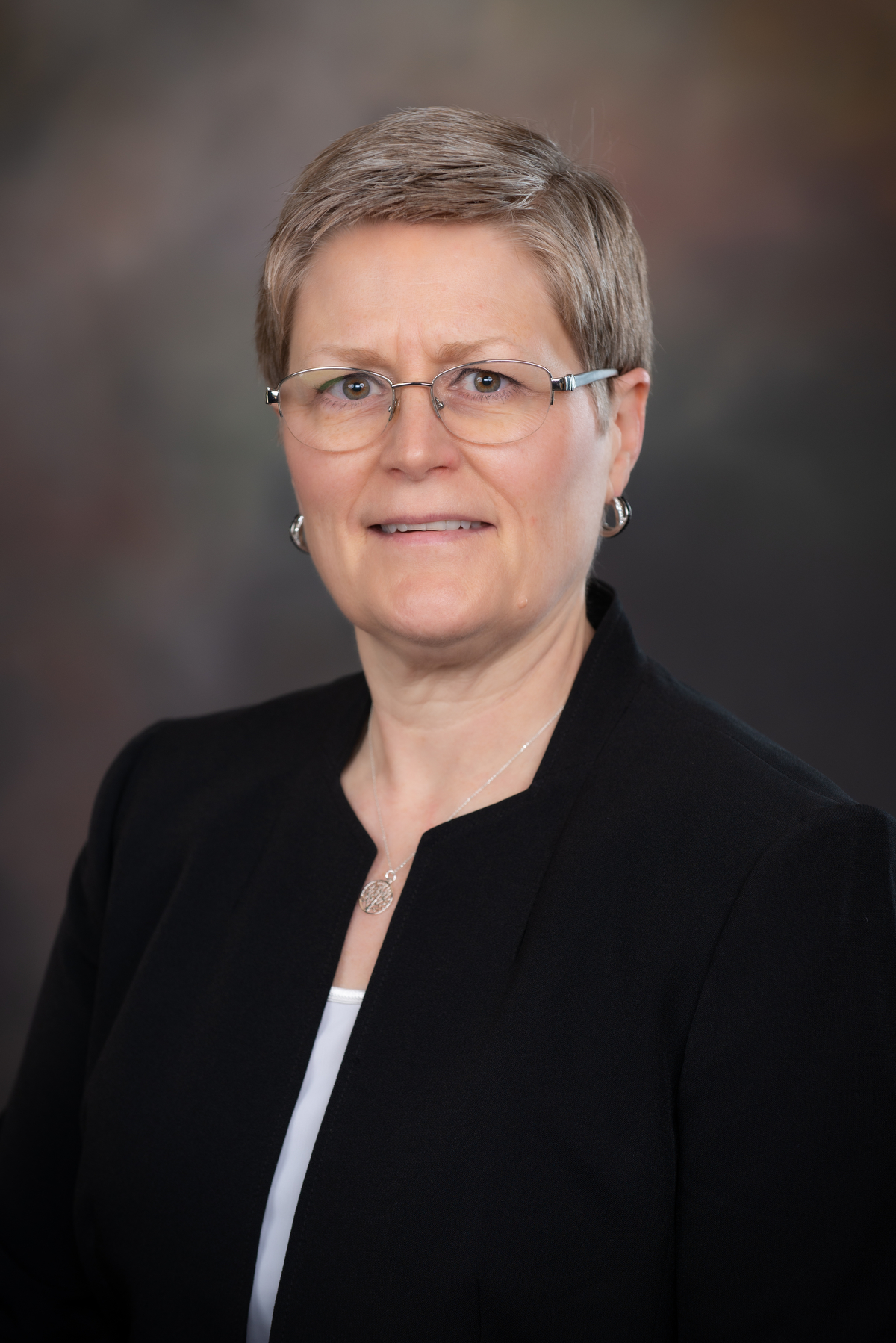
As LAP has expanded over the years and has come to include statistics courses here at Auburn, it has given us the incredible opportunity to work with Heather Haskell, a lecturer in the Department of Mathematics and Statistics, and feature her hard work for March’s Faculty Spotlight.
Throughout her 34 years of teaching experience, Haskell has never experienced the kind of peer-to-peer guidance offered by Auburn’s Learning Assistant Program. A math education major, Haskell always was intent on becoming a teacher. During her time as an undergrad, she worked as a tutor for a general studies program outside of normal classes but always thought such resources would be more accessible if based in the classroom.
Upon being introduced to LAP and implementing it this Spring semester, Haskell quickly prompted students to apply for the program and regularly encourages those in her class to utilize their LAs. In her class structure, Haskell usually “lets students lead themselves” through problems and then has the Learning Assistants and herself confirm the material for students through summarization.
Haskell’s LA-supported classes include over 100 students per section. She explained how she is unable to answer questions from every student and describes the help she receives from her LAs as an “integral part of learning.” LAs in Haskell’s classes host office hours twice a week, two to four hours per day in addition to holding review sessions before major assessments. Haskell recalls one LA-led review session prior to the first exam which 75 students attended, many of whom reported it to be extremely beneficial.
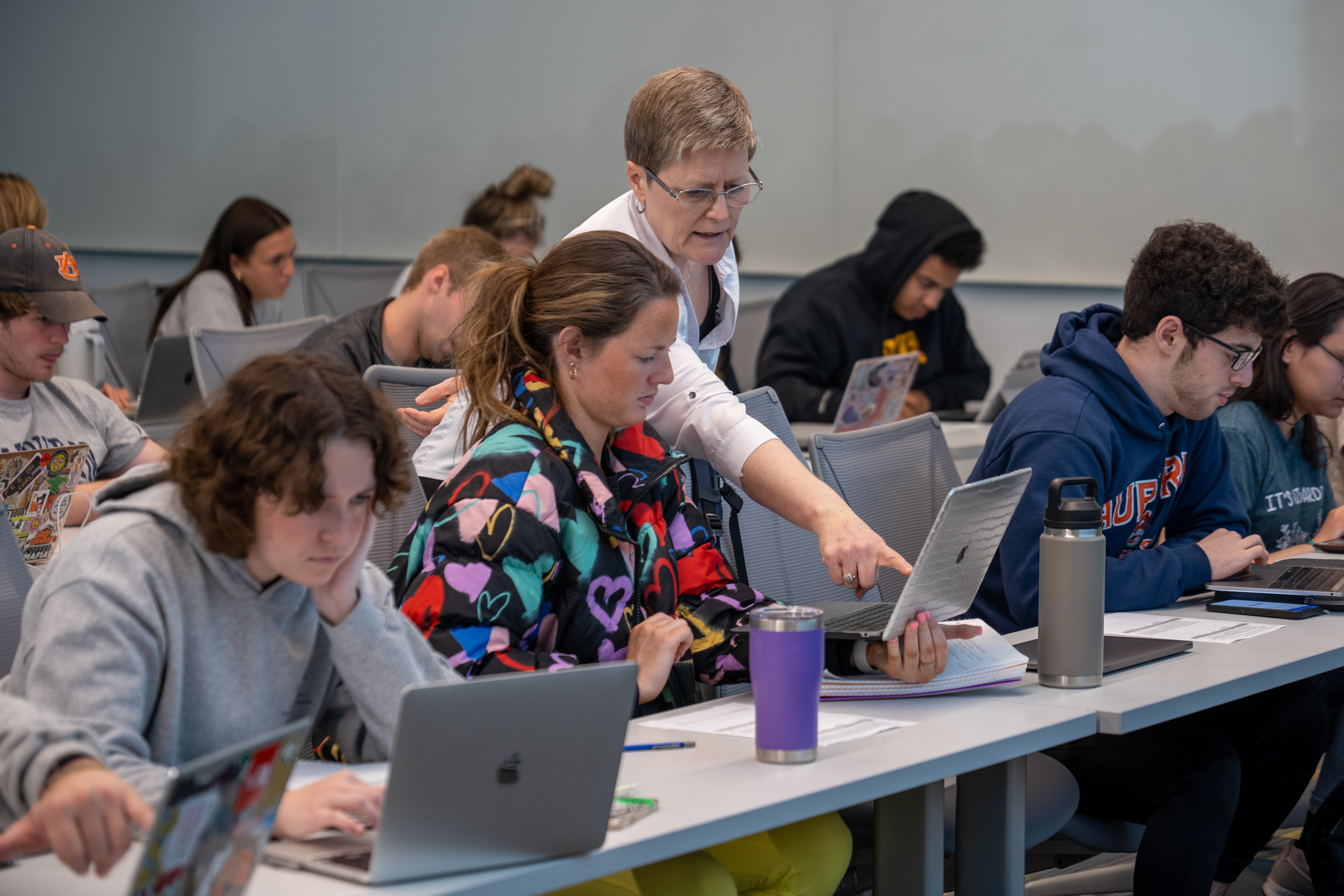
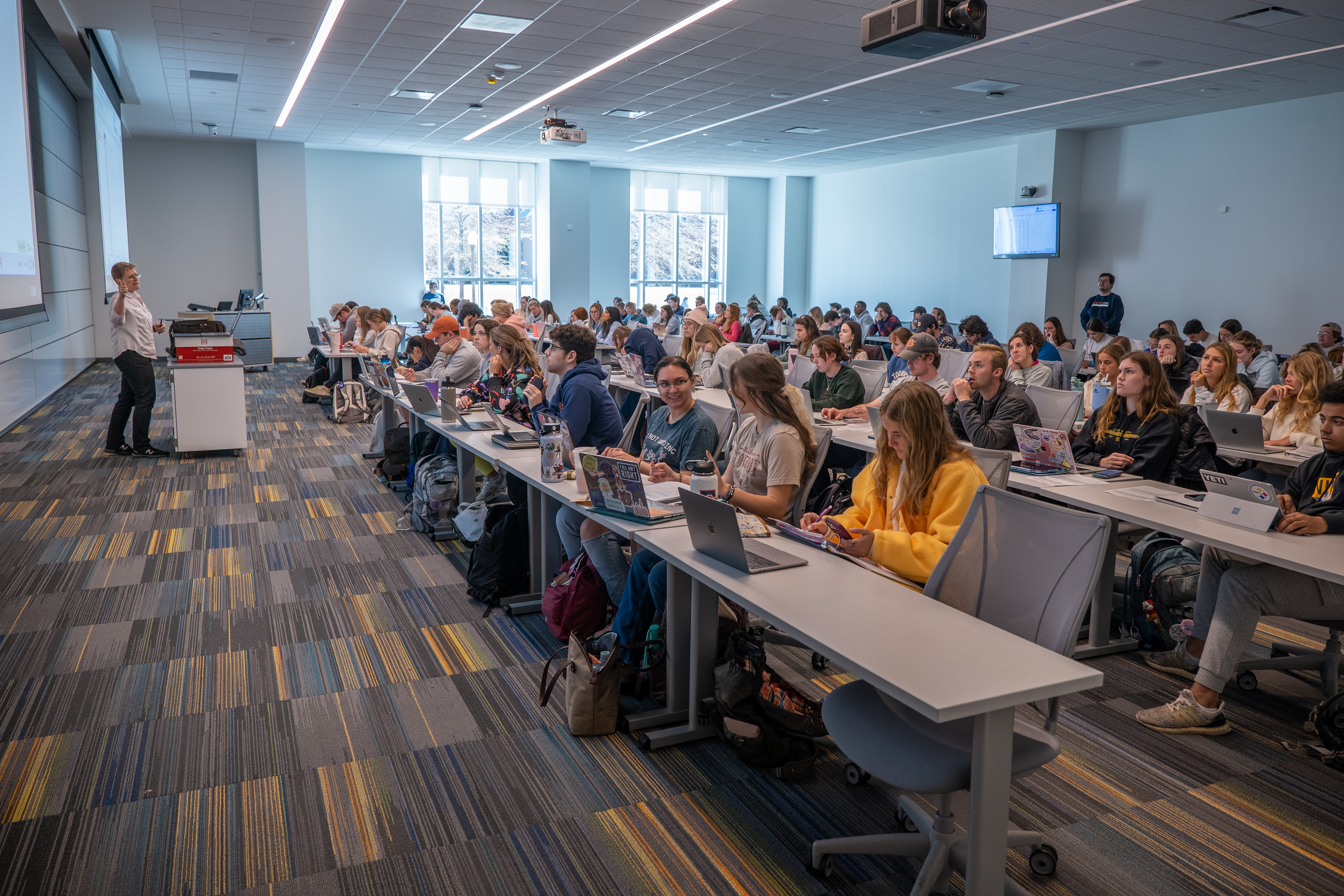
As it stands now, Haskell works with four Learning Assistants, two per class section. Prior to class, Haskell sends LAs the problems the students will be presented with that day, sources of potential confusion, and a preview of commonly asked questions. Her LAs send her weekly reports about the attitude of the class and topics the LAs think students might need more explanation about.
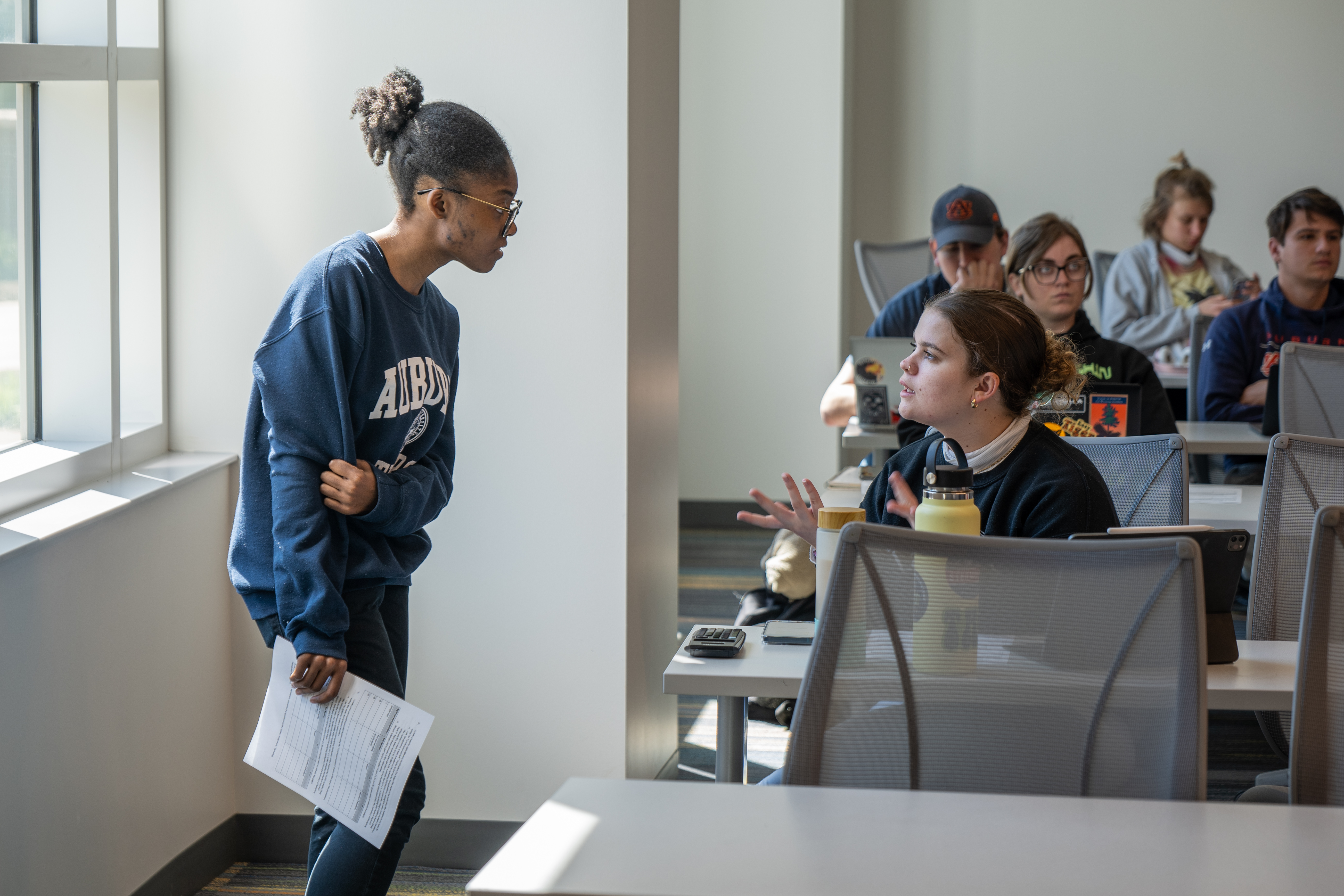
Haskell heavily values the peer-to-peer experience offered by LAP. As an experienced instructor, she can often spot students that may need additional help, perhaps better than an LA can. At the same time, student LAs have just taken the course recently; they have a fresh understanding of what it is like to learn the material for the first time and can connect with students who may be intimidated by the professor. This collaboration between LA and the professor is another component Haskell has come to appreciate.
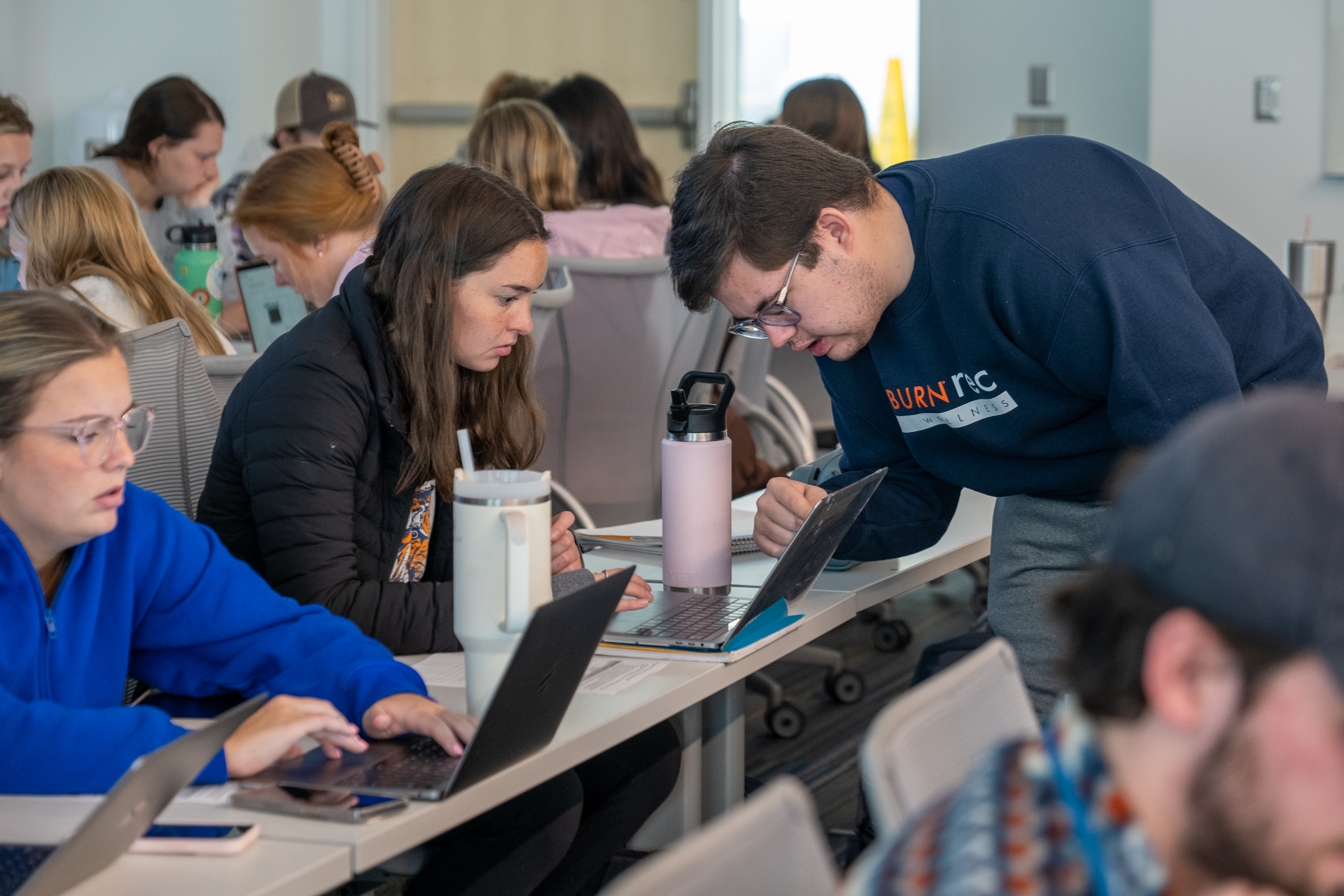
Haskell heavily promotes the use of LAP in her statistics courses. She notes that STAT is the only comparable LA course without a recitation section or lab, making LA support outside of class even more valuable. As the program develops, both Haskell and AULAP hope to expand to more courses in the math department and other departments here in COSAM.
LA of the Month: Katie Marlow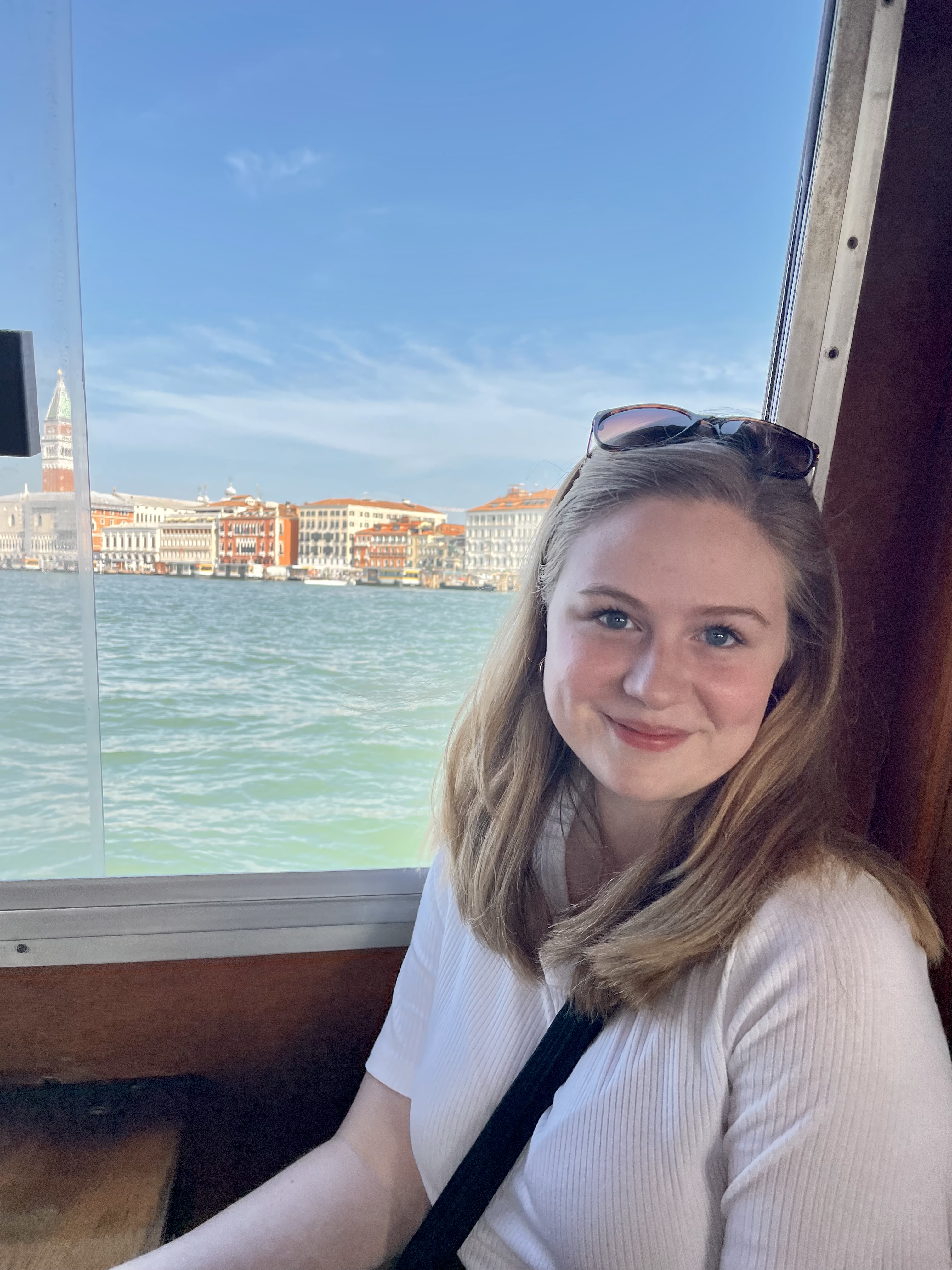
Katie Marlow, a Junior here at Auburn studying genetics, was first exposed to the Learning Assistant program during her sophomore year microbiology class. She reached out to an LA named Riley, emailing her on the first day of class. After visiting Riley’s office hours regularly throughout the semester, Katie’s success in the course inspired her to become an LA herself. She now works with Dr. Mehari and her hard work has not gone unnoticed; it is with great pride we recognize Katie as March’s LA of the month.
Katie takes the valuable information she learned as a student who utilized the LA program and incorporates it into her role as a Learning Assistant for others. In our talk with her, Katie emphasized how valuable an LA’s perspective is. LAs are able to prepare students for the class in a way a professor may not be able to; they cover the course’s expectations, test difficulty, and how to best study- all from the perspective of a former student.
Katie encourages others to seek out help from LAs. She acknowledges the reality of life as a student: “We have a million other things going on, not just academic,” she notes. It is for this reason, she explained, that LAs are such a helpful resource. “We know how difficult the material is,” she says, “we’re here to help you.”
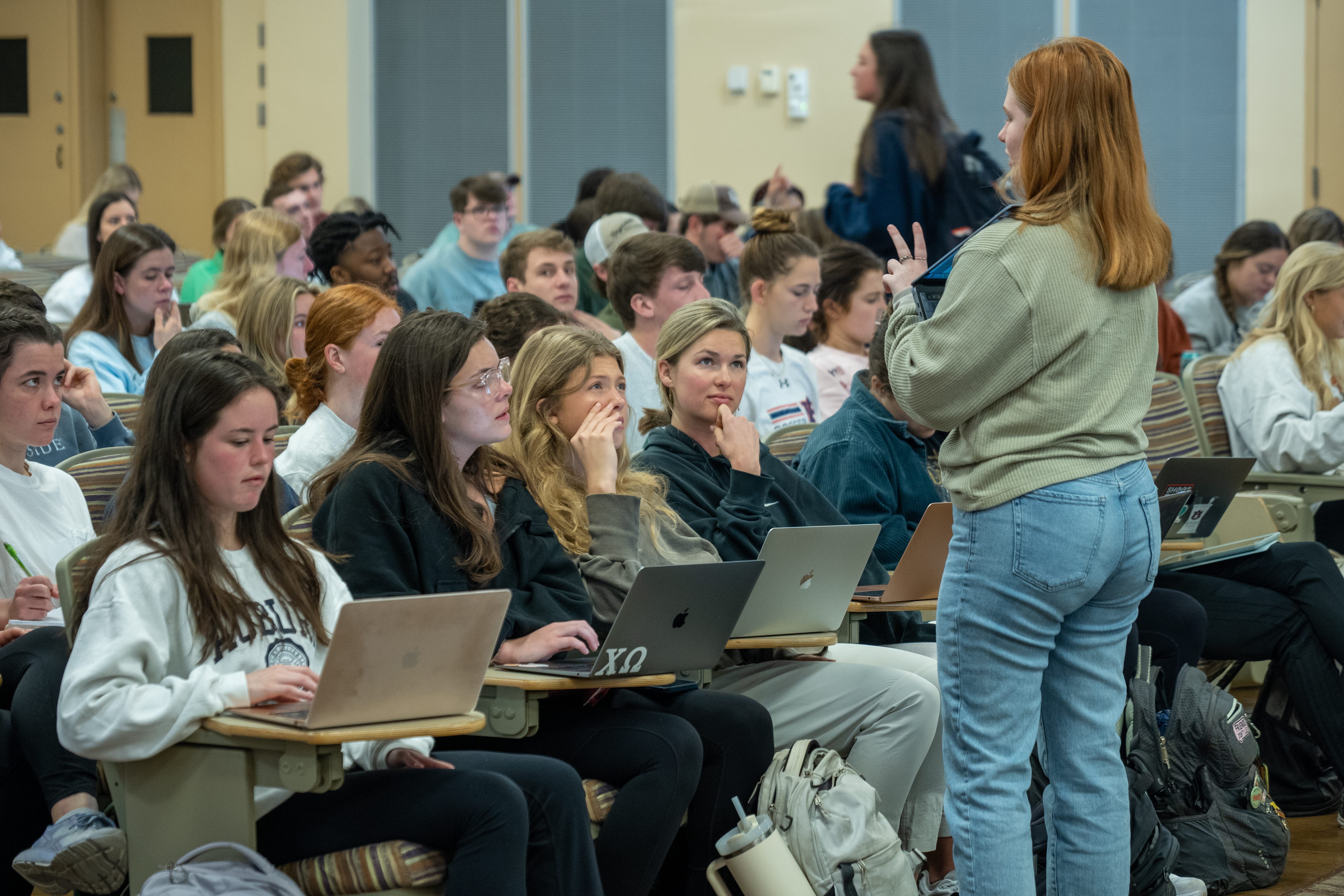
Katie understands the hesitation of some students asking the professor for help. This is why, when she walks around the class during student work time, she is sure to walk slowly and look for students who may be struggling. Sometimes she sits outside of groups working together, listening to their work and posing questions to lead the discussion. Other times groups seek her out to guide them through particular questions.
Katie explains how rewarding it is to see the students she helps in class as well as those who regularly come to her office hours improve their skills and develop better study habits. Katie recalls a particular time with a student struggling with DNA replication. Katie worked with them one-on-one trying visual and auditory learning methods to no avail. Finally, Katie realized this student was a kinesthetic learner, and when they got up and moved around the room, the material clicked. Katie remembers this student approaching her after a test thanking her for her help.
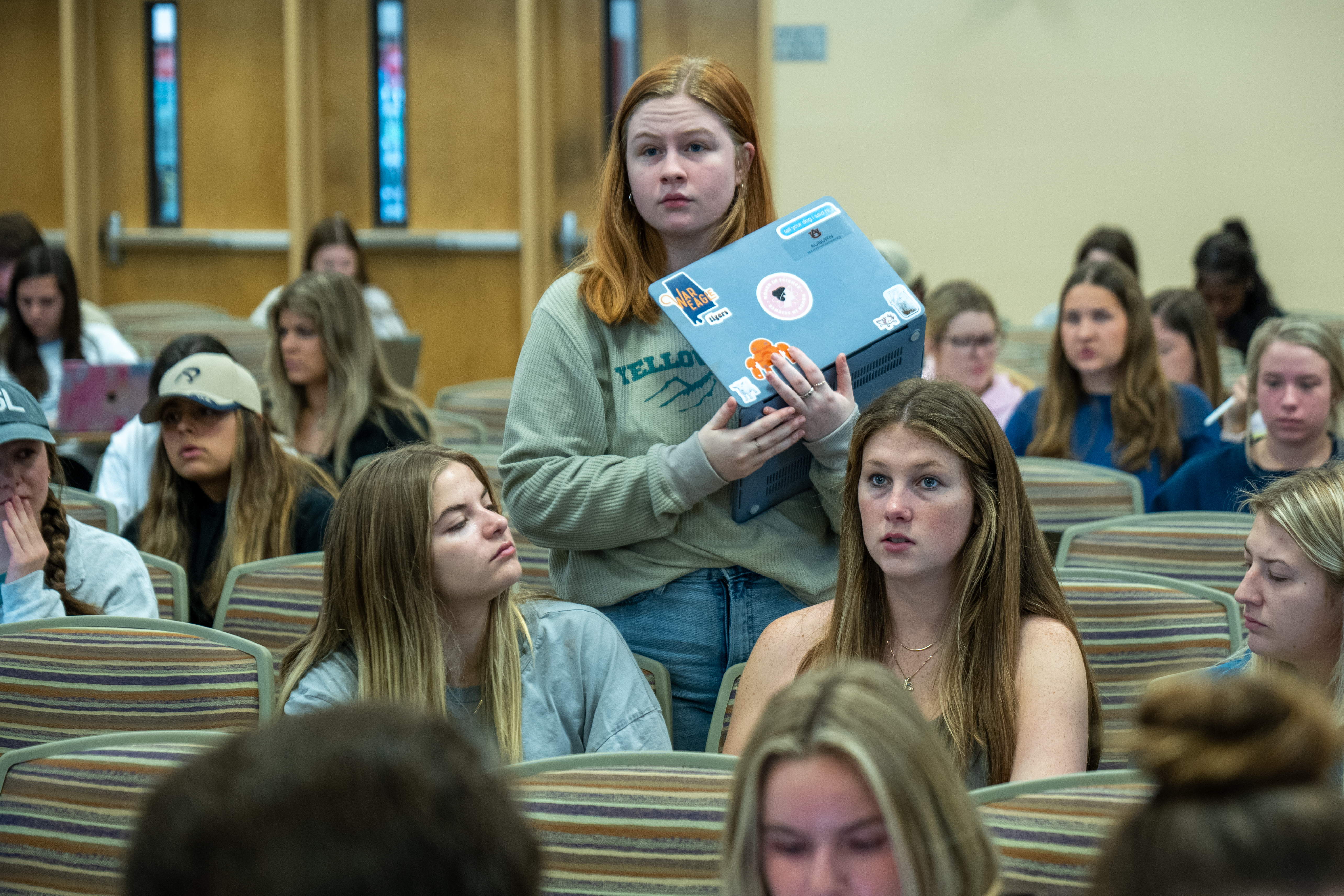
Toward the end of our talk with Katie, she mentioned her future career path and the role LAP has played in her plans. Katie plans to pursue a Ph.D. in genetics and notes that she has always wanted to be a professor. She says LAP has helped her realize how much she loves education and allowed her to build relationships with students and professors. So far, LAP’s impact on her career opportunities has been invaluable. She values Dr. Mehari and his role as a mentor as he has supplied letters of recommendation, job resources, and encouragement to pursue one’s passion.
To students curious about becoming LAs, Katie says to apply; reach out to professors and fellow student LAs. Katie recommends the experience, relationships, and resources AULAP offers and hopes others make the most of it.
The AULAP 2022 Annual Assessment is now available
All students and faculty involved or interested in the Learning Assistant Program are welcome to read the 2022 Annual Assessment report published on the AULAP website. Click the "Assessment Report" tab on the home page to access past and future reports.
Reminder: Join us for LA Faculty Coffee and Chat Hours
LA Faculty Coffee and Chat Hours provide opportunities for colleagues to strengthen connections and collaborations within the LA community. All LA faculty and those who are new to but interested in learning or adopting the LA model are welcome to stop by for Q&A, experience sharing, and feedback.
Join us for an in-person or virtual discussion about the Auburn University Learning Assistant Program (AULAP). The Faculty Coffee and Chat Hours are held every second Monday of each month in the Biggio Coffee room - ACLC 259 (with coffee and massage chairs)
Monday, April 10th, 2023 2-3 pm
https://auburn.zoom.us/j/3334904900
For additional information specific to departments, please contact the departmental LA coordinators.
Math and Statistics:
Heather Haskell: hgh0035@auburn.edu
Chemistry:
Rachel Prado: jrp0089@auburn.edu
Dave Crisostomo: dac0056@auburn.edu
Physics:
Daniel Merrill: dam0040@auburn.edu
Melissa Halford: mrh0091@auburn.edu
Geosciences:
Adam Payne: aap0047@auburn.edu
John Fronimos: jaf0086@auburn.edu

